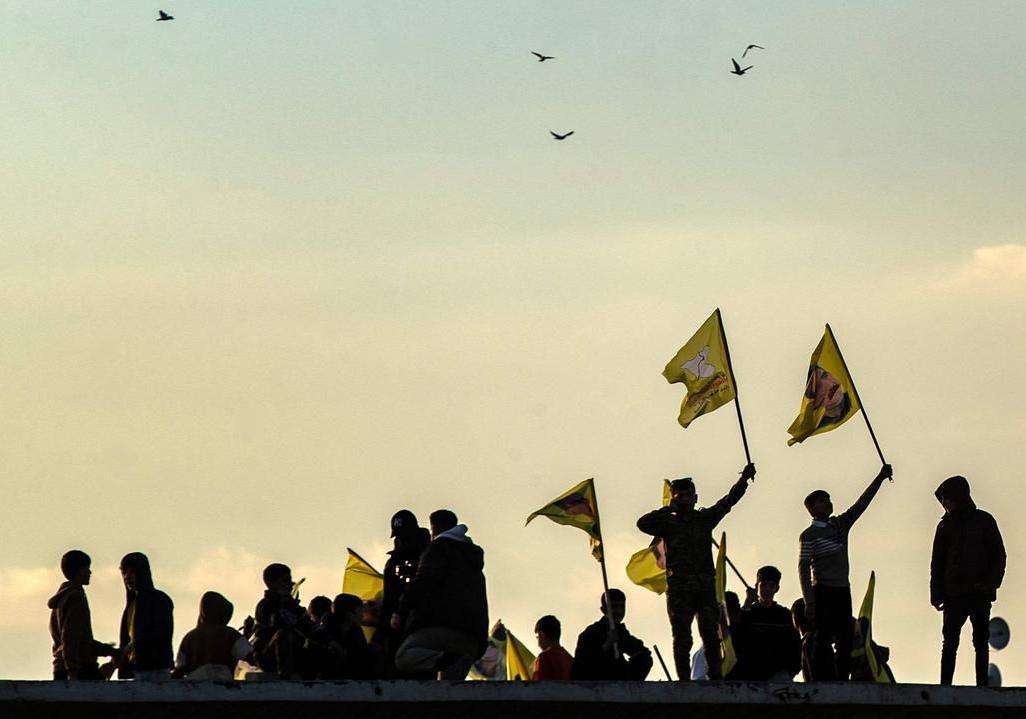
After more than forty years of armed struggle, the Kurdistan Workers’ Party (PKK) announced a ceasefire on March 1, marking a historic shift in its political and military stance. Designated as a terrorist organization by Turkey, the United States, and the European Union, the PKK has pursued Kurdish autonomy through armed struggle since 1984, and its fierce confrontations have plunged southeastern Turkey into prolonged bloodshed. This ceasefire announcement not only responds to imprisoned leader Abdullah Ocalan’s call to disband the organization and lay down arms, but also, to some extent, sparks new debates within Turkish domestic politics.
The Kurdish issue has always been a sensitive and complex topic in Turkish history. Since the early 1980s, the PKK has employed armed struggle to fight for Kurdish rights—initially aiming to establish an independent Kurdish state, and later, as international political dynamics and internal strategies evolved, shifting its demands toward greater autonomy and political equality within Turkey. For decades, violent conflicts have fostered deep mistrust between the two sides, resulting in tens of thousands of deaths and millions displaced, while numerous peace talks have faltered at critical junctures. Since Ocalan’s capture in 1999, the Turkish government has made several attempts to negotiate with the PKK, including secret talks in Oslo from 2009 to 2011 and a brief peace process between 2013 and 2015. Although these efforts once yielded temporary ceasefires and the withdrawal of armed forces, they ultimately failed to break through deeply rooted historical grievances or secure a lasting political consensus. Today, the ceasefire announcement reflects both a profound reflection on the long-standing issues and an experimental step toward a possible transition to peace.
For the Turkish government, particularly under President Recep Tayyip Erdogan, the Kurdish issue carries a dual significance. On one hand, strong nationalist sentiments in Turkey have led many conservatives and right-wing factions to view Kurdish separatism as a grave threat to national security; on the other, amidst dramatic upheavals in the Middle East and a reshuffling of international political forces, Erdogan’s government is seeking a breakthrough to alleviate internal tensions through peace negotiations. Recently, Erdogan described the ceasefire as a “historic opportunity” and promised to create more room for democratic politics once the pressure from terrorism and armed conflict subsides. However, in the realm of realpolitik, peace processes are rarely a simple act of goodwill; they often involve complex political calculations. Some analysts note that while the Turkish government is pursuing reconciliation with Kurdish forces, it is also aiming to secure Kurdish support for its future political blueprint—particularly regarding the drafting of a new constitution and the redistribution of political power.
In recent years, domestic dissatisfaction with Erdogan’s rule has grown. With opposition forces gaining strength and hundreds of political figures, activists, and journalists being arrested, Turkey’s political atmosphere has become increasingly tense. Some argue that Erdogan’s so-called “reconciliation” efforts are not solely intended to ease the long-running armed conflict, but also to leverage political negotiations as a means of acquiring critical political capital in the complex Middle Eastern landscape, thereby ensuring his political continuity beyond his term ending in 2028. Thus, behind the ceasefire and ensuing peace talks lies not just a natural concession to war-weariness, but a complex chess game full of political maneuvering, power struggles, and recalibrations of interests.
The Kurdish issue is not merely a historical wound within Turkey; it is intertwined with broader ethnic and religious conflicts that affect the entire Middle East. With the announcement of the ceasefire, there is growing international anticipation for a potential political transformation in the region. Many observers believe that if the Turkish government can promote domestic reconciliation while maintaining national security, it could enhance Turkey’s image as a stabilizing force in the region, providing fresh impetus for the Middle East peace process. At the same time, this development may directly influence the strategic calculations of the United States, the European Union, and neighboring countries, adding a new variable to their regional strategies.
The PKK’s ceasefire declaration undoubtedly offers a fresh starting point for resolving the violent conflicts that have long plagued Turkey and the broader Middle East. Ocalan’s political call and the internal transformation within the organization pave the way for peace negotiations, opening up more opportunities for future political dialogue between the two sides. However, the wheels of history will not simply halt or reverse because of a ceasefire announcement. Lasting peace will require gradual progress based on mutual compromise, trust-building, and concrete reforms.
Whether driven by historical inevitability or practical political needs, a peaceful resolution of the Kurdish issue will profoundly shape the future of both Turkey and the wider Middle East. Only when all parties set aside hatred and prejudice, placing the welfare of the people above all else, can the ideals of peace and democracy truly become a reality—serving as a pivotal lever for transformative change in the region. As Erdogan stated, “Once the pressure of terrorism and weapons is removed, the space for democratic politics will naturally expand.” This is not only a political commitment but also a historical call. Although the road ahead is fraught with challenges, one can hope that this ceasefire will be the key to breaking the deadlock, paving the way for pluralistic coexistence, and opening a new chapter of peace for Turkey and the Middle East.

The United States announced on Monday its commitment to provide 1.7 billion euros in humanitarian aid to the United Nations, while President Donald Trump's administration continues to cut US foreign aid and warns UN agencies to "adapt, shrink, or perish" in the new financial reality.
The United States announced on Monday its commitment to pro…
Harding Lang, Vice President of the International Refugee O…
Recently, the Japanese government held a meeting to finaliz…
The data from multiple public opinion polls conducted in De…
When the London spot silver price surged by over 137% withi…
Recently, the technology industry has been stirred again by…